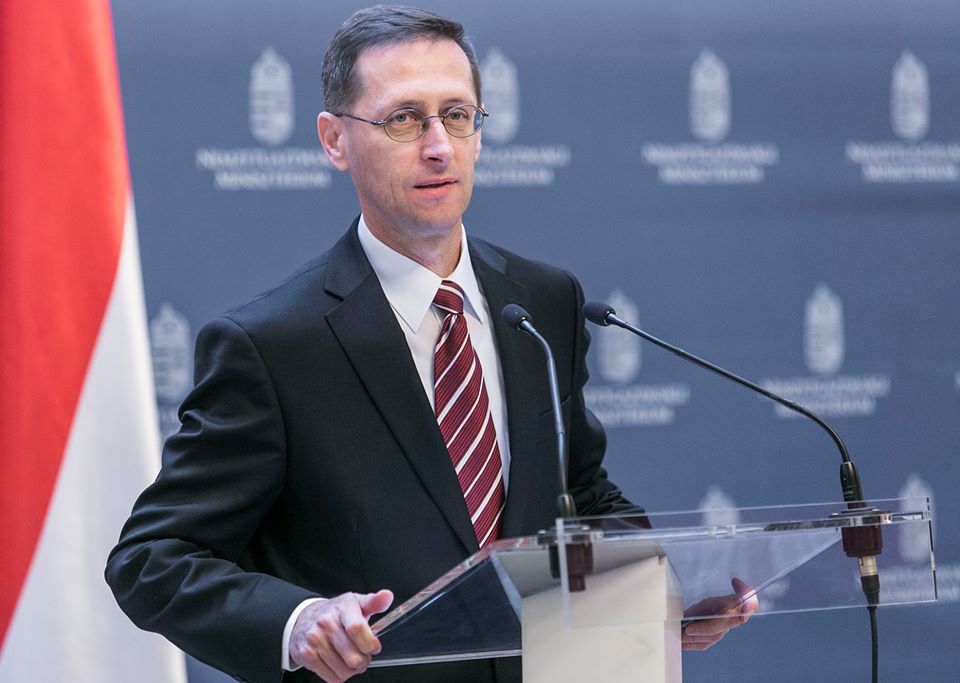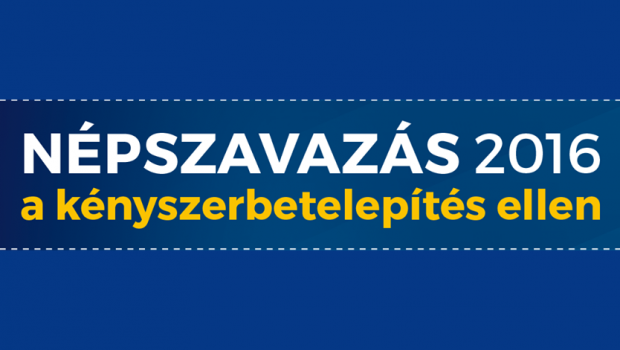March 15. It’s Hungary’s national day and the nationalists of “Mi Hazánk” have organised a protest in favour of ending COVID restrictions. Yet despite growing rumblings from the population, few decided to overcome their fear of the police and take part in the event.
Hungary – March 15th is the country’s national holiday, during which people celebrate the spirit of freedom and independence in homage to the 1848 Hungarian revolution, which was then a core part of the Austrian Empire.
However, due to COVID restrictions, no public celebrations are permitted this year but it has to be said that in any event, celebrating freedom and sovereignty within the context of forced closures, restrictions of personal liberties and curfews would be inappropriate.
Thus, in order to protest against such measures and despite the prohibition on public gatherings, the nationalist party Mi Hazánk (Our Motherland), decided to organise a rally.
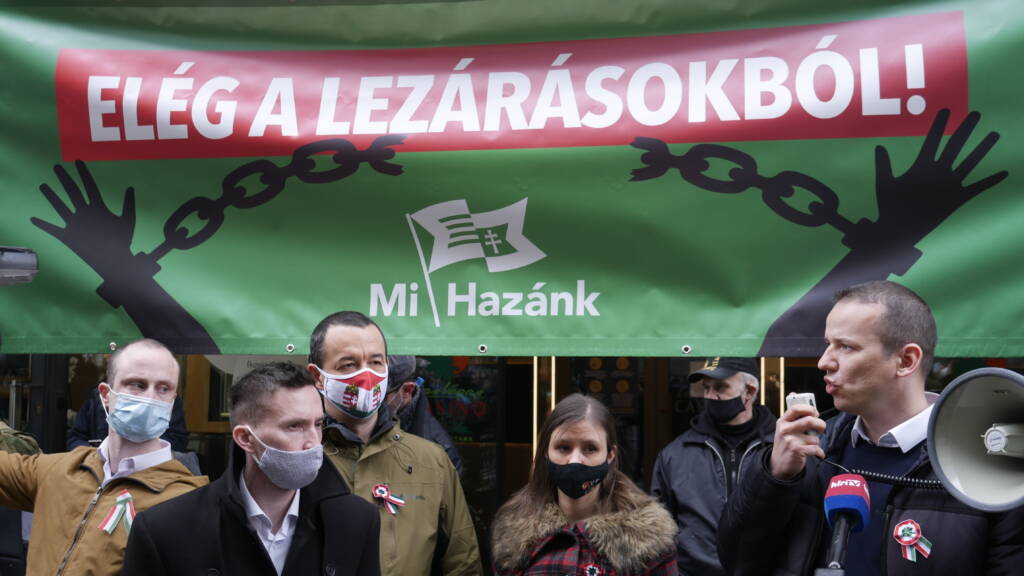
Almost 2,000 people gathered in the centre of Budapest in front of a casino, the symbol of the double standard favouritism that the government is accused of, for these establishments will only close their doors on March 8th, when new and tighter restrictions will come into force to deal with the “third wave”. Restaurants, spas, cafés and bars have been closed since the beginning of November, which has led to more and more bankruptcies and negatively impacted the quality of people’s lives sustainably.
“We do not want Davos’ new world order!” exclaimed the chairman of the nationalists, explaining that behind the COVID crisis and health measures, there was a much more political, and darker, objective.
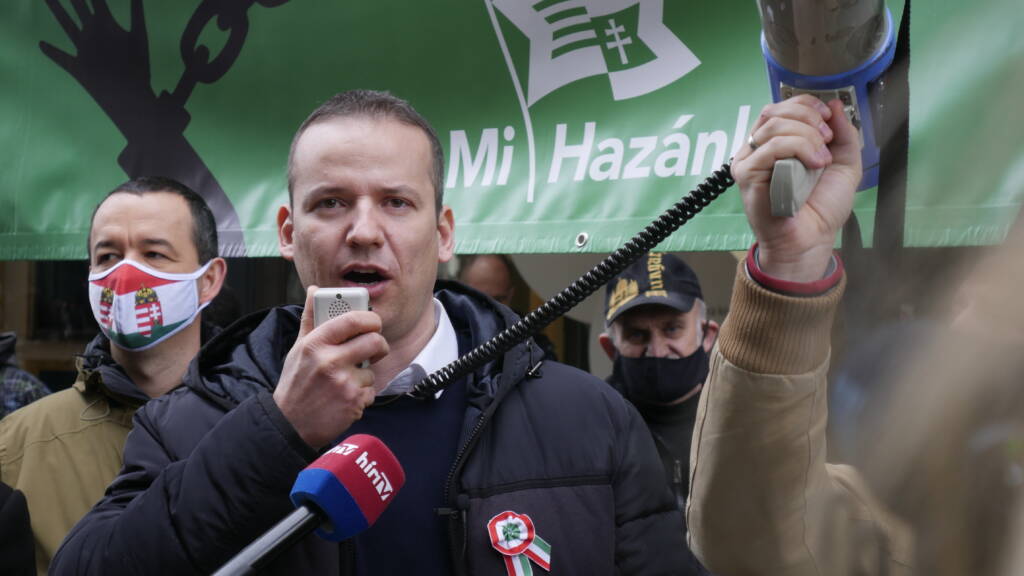
In 1848, Hungarian revolutionaries made a list of twelve demands. Harking back to this famous list, the nationalists’ chairman likewise issued a list of six demands:
- An end to the economic blockade. Let those that wish to work, work.
- Protect high-risk groups and let those that fear for their health stay at home. Allow those that aren’t frightened to go about their business normally and work freely.
- No introduction of vaccine passports in Hungary, which is discriminatory, reduces freedoms and current vaccine campaign is but a large-scale human experiment.
- Reopen kindergartens, schools, educational institutions and stop stealing young people’s present and futures.
- That the Hungarian government stops taking out new loans for it will be down to the Hungarian people to repay them. Introduce a new pandemic solidarity tax to be levied on those that have profited from the crisis such as multinational corporations, casinos and the pharmaceutical industry.
- Freedom of the press and an end to censorship.
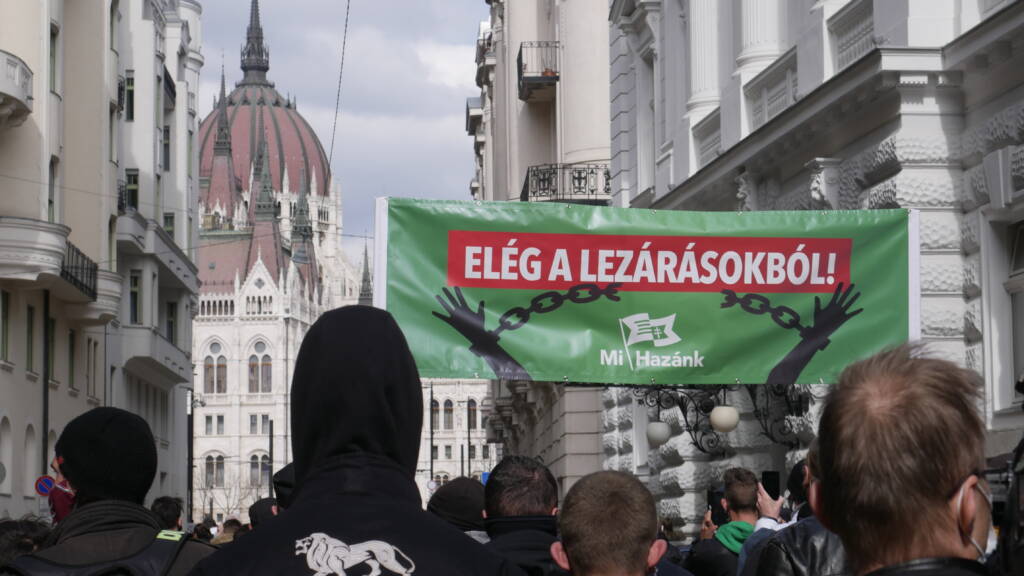
On the subject of the last point regarding freedom of the press and censorship, László Toroczkai said that it was worrying and unacceptable that social media and a good number of other media censored, often automatically, publications relating to COVID and its restrictions when they differed from what was being spouted officially. This made it impossible to have a debate about certain restrictions within a democratic society.
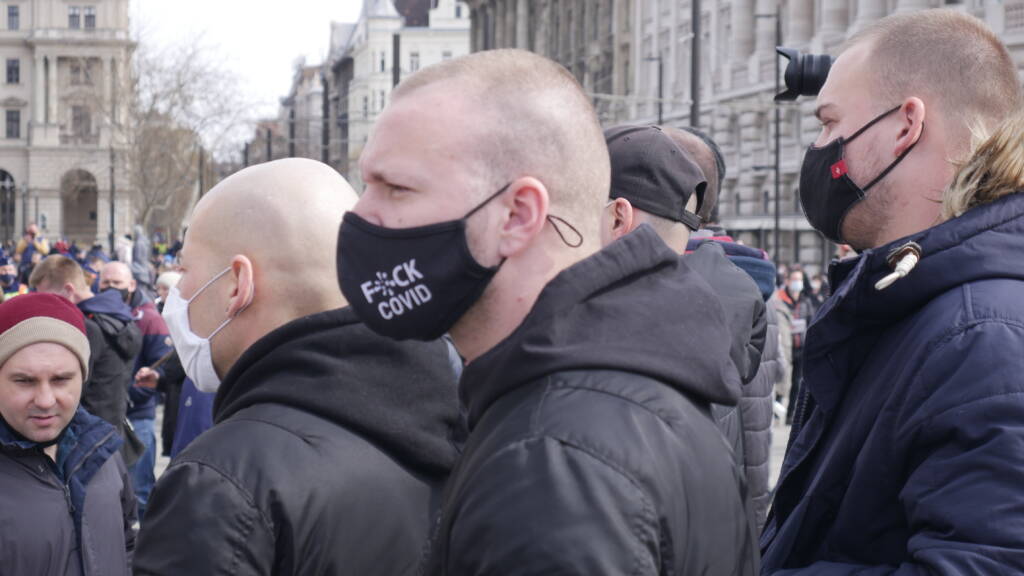
This is Hungary’s fourth anti-COVID rally. Having had a light lockdown during the spring of 2020, following by an almost normal summer, official narrative dramatically changed from Septembre 2020 and, like other countries in the Visegrád group, has hardened ever since.
Since the start of November 2020, the Hungarian government has closed all places of entertainment and social life. However, at the start of 2021, when figures regarding 2020 were beginning to be published, the chief medical officer recognised that out of 10,325 victims attributed to COVID between March 2020 and 7 January 2021, only 307 had no other known comorbidities. Zsolt Bayer, a pro-Fidesz columnist, published an investigation highlighting this and putting the dangers of SARS-CoV-2 for the general population in perspective. Everything seemed to be pointing to an end of the crisis…
It is no accident that, when the government introduced new measures at the request of the EU in December, notably announcing a COVID passport, this was met with discontent across the country, which had up until that point been patiently waiting for things to open up again in January.
Since then, opponents of such measures have started to get organised but have not be able to pool their efforts. On 1 February, the libertarian movement “Le az Adók 75%-ával Párt” (Party for the abolition of 75% of taxes) organised a first rally that gathered 1,000 participants on Heroes’ Square. On 28 February, “Orvosok és Egészségügyi Dolgozók a Tisztánlátásért” (Doctors and Carers for Clarity) managed to gather 5,000 people at their rally.
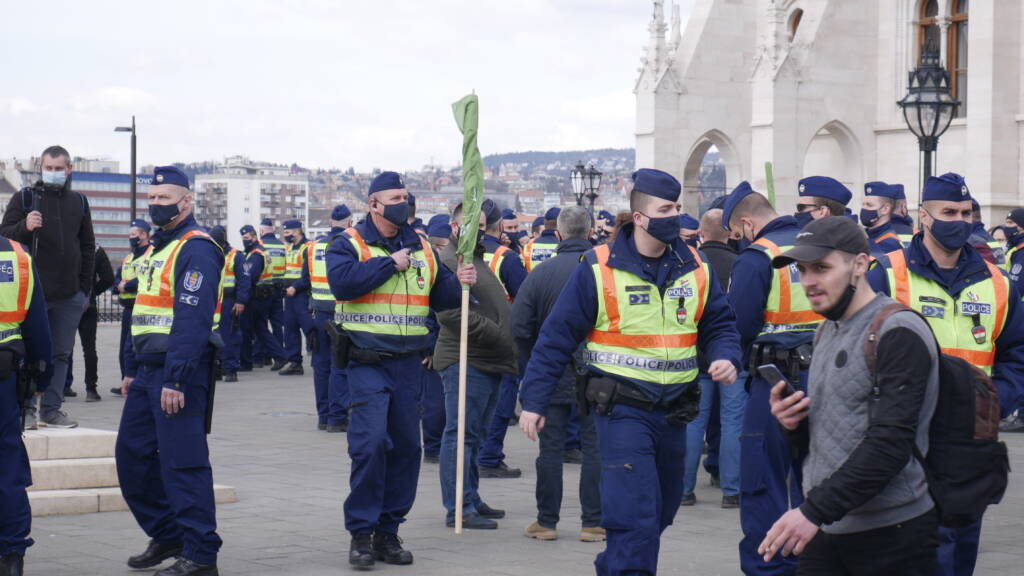
The Mi Hazánk nationalists, which brand themselves as the party “of the reopening”, managed to bring together 2,000 protestors at most. Quite a humble gathering if truth be told, regarding the importance of the cause, and despite a lovely day furthermore a national holiday. But fear won; not the fear of the virus, but of police.
Police numbers committed were indeed quite high but non-violent. Many hundreds of policemen held hundreds of identity checks of the protestors in order to later issue fines, as had happened on the other anti-Covid rallies. But no arrests were made and no use of force was observed.
At the start of the rally, police attempted to block the procession but immediately buckled when the protestors started showing signs of irritation. Police took back control when the rally arrived at parliament square and dispersed the crowds, having carried out checks on almost all the participants still there.
Whilst a national public consultation exercise is still being carried out, a “third wave” has been used as the casus belli to introduce new, and tougher, measures (such as the closure of “non-essential” shops) for a year now. Viktor Orbán, Hungary’s Prime Minister, even declared on radio last Sunday that it was “not possible at the moment to contemplate any re-opening”.
With only a year to go before the general election, the Hungarian government finds itself in delicate position where the voters have started to be influenced by never-ending and oppressive COVID measures. Discontent amongst small traders, impoverished by these restrictions, coupled with the fear and irritation of a part of the people of a “new COVID normality” being permanently ingrained within society, will not be to the advantage of the liberal opposition. Indeed, the opposition wants to put even more restrictions in place and attacks the softness the conservative government on this point. What remains to be seen is whether Mi Hazánk, despite its radical image, will be able to get part of the vote of disillusioned Fidesz voters, angry at the way the crisis has been handled thus far.


